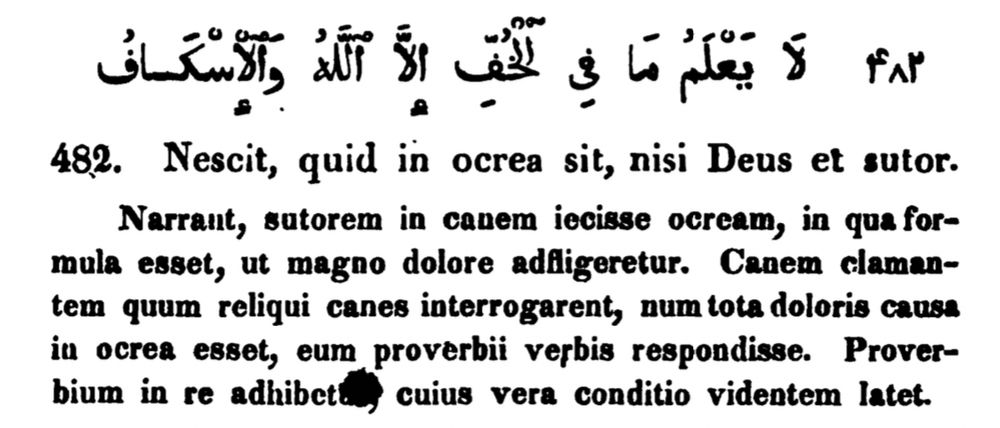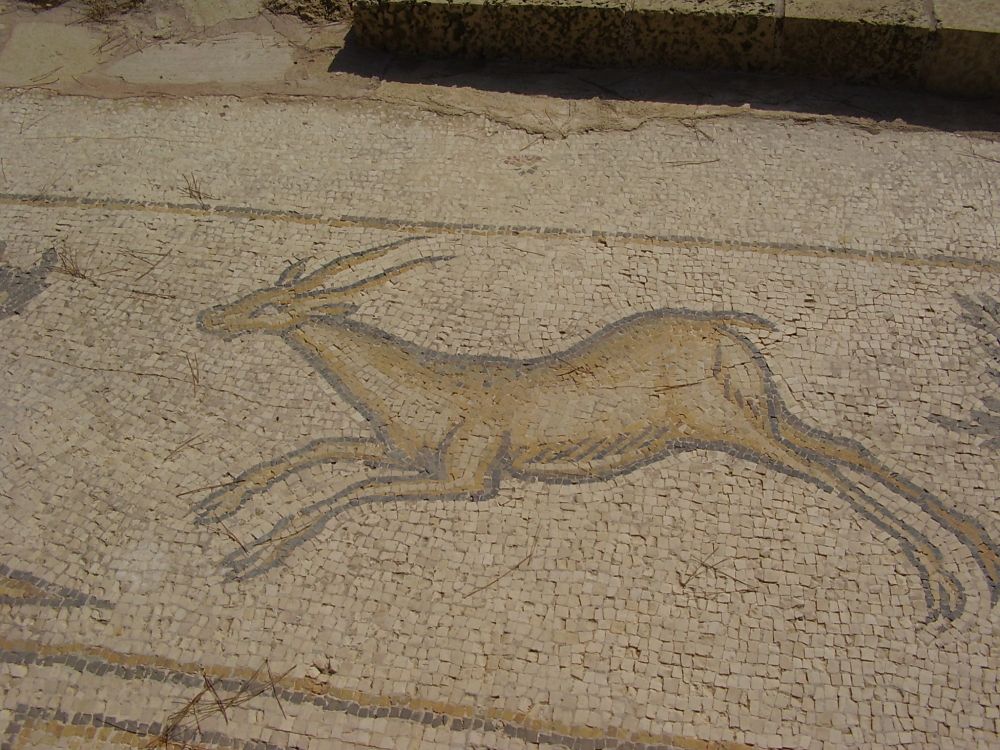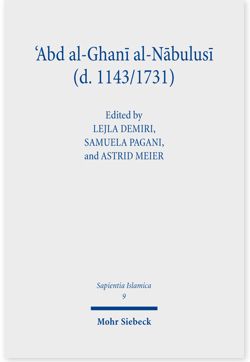It's interesting in that it seems to be derived from a compound? Maybe some Persian influence there
05.10.2025 00:02 — 👍 1 🔁 0 💬 0 📌 0

al-Khubzaruzzi (d. c.327/938)
Abū al-Qāsim Nasr ibn Ahmad al-Khubzaruzzi (Khubza'aruzzi, Khubzuruzzi, etc.), was an illiterate poet of Basra. He baked rice-bread (hence his name) in a shop in the Mirbad (camel market) of Basra, where Ibn Lankak and other élite poets of the city would visit him to hear his verse; for someone of such lowly social status to achieve such celebrity was clearly most unusual. He is said to have spent some time in Baghdad, and, according to a rather dubious rumour, was drowned by the military adventurer al-Barīdī after mocking him in a poem. He excelled primarily, however, in amorous verse (see ghazal), which was directed exclusively to males; the young men of Basra are said to have competed for his poetic attentions. His style is described as simple and unsophisticated, but delicate and effective. His dīwān, reportedly compiled by Ibn Lankak, survives in an unpublished Yemeni manuscript. His verses are also very widely quoted in later anthologies.Further reading
Fullest accounts, with selections, in al-Tha'ālibī, Yatīmat al-dahr, Cairo (1956), vol. 2, 366-9, and al-Khaṭīb al-Baghdādī, Ta’rikh Baghdād, Cairo (1931), vol. 13, 296-9.E.K. ROWSON
Majallat Majmaʿ al-ʿIlmī al-ʿIrāqī, 1979, part 2, p. 165
Bio of the poet:
04.10.2025 23:24 — 👍 1 🔁 0 💬 0 📌 0

١- جار الزمانُ على الأحرارِ في تصرفه
وأيُّ دهرٍ على الأحرارِ لم يَجرِ؟
٢- عندي من الدهرِ ما لو أن أيسرَهُ
يُلْقَى على الفلكِ الدوَّارِ لم يَدُرِ
—Fate Complaint—
⌛
Our precarious age oppresses us
and what age leaves the free uninjured?
The lightest fate that I've suffered
would stop the heavens from turning.
— al-Khubzaruzzī (d. 938)
04.10.2025 23:23 — 👍 11 🔁 3 💬 2 📌 0
قائمة أسماء الأسد في اللغة العربية - ويكيبيديا
An Arabic Wikipedia article provides the list:
ar.wikipedia.org/wiki/%D9%82%...
02.10.2025 19:57 — 👍 4 🔁 0 💬 0 📌 0

cover of Arabic book أسماء الأسد
Arabic has 348 words for "lion". Here is the cover of Ibn Khālawayh's (d. 980, Baghdad) book on the subject.
02.10.2025 19:50 — 👍 22 🔁 11 💬 3 📌 2


Either coincidence or a very attentive publisher... The author copies of my attempt at translating two #Ottoman texts on 16th-century #poetics arrived at my doorstep right on #InternationalTranslationDay!
01.10.2025 10:26 — 👍 2 🔁 1 💬 1 📌 0
Farrūkh, Tarīkh al-adab al-ʿArabī, 2:393
23.09.2025 01:16 — 👍 1 🔁 0 💬 0 📌 0

Arabic text
قال في وصف الشدو (الغناء):
شدُوّ ألذّ من ابتدأ العينُ في إغفائها،
أحلى وأشهى من مُنى نفَسٌ ونَيلُ رُجائها.
—On a beautiful song—
🎶
A song more delicious
than an eye
beginning to sleep —
sweeter and lovelier
than a soul's wishes
and its attainment of its dreams.
— Abū ʿUthmān al-Nājim (Iraq, d. 926)
23.09.2025 01:14 — 👍 10 🔁 5 💬 2 📌 0

قد ذهب الناس فلا ناس وصار بعد الطمع الياس
وساس امر الناس الاناهم وصار تحت الذنب الراس
Quoted in Farrūkh, Tarīkh al-adab al-ʿArabī, 2:382
—These Days—
📅
Real people are gone, there's no one.
Greed's been replaced by despair.
The lowest rule over everyone;
the head is under the tail.
— Muḥammad ibn Dāwūd al-Jarrāḥ (Iraq, d. 909)
20.09.2025 04:28 — 👍 25 🔁 8 💬 0 📌 1
The author was a Shafi'i legal scholar. A transcription of the Arabic is in the alt text. Information on the manuscript can be found here, my source:
t.me/konashaadel/...
18.09.2025 23:39 — 👍 1 🔁 0 💬 0 📌 0

Manuscript image
الحمد لله
للإمام عبدالله بن أبي عصرون صاحب المصنفات الجليلة في الفقه على مذهب الإمام الأعظم محمد بن إدريس الشافعي قدس الله روحهما ونور ضريحهما وأعاد علينا من بركتهما بمنه وكرمه
أؤمِّلُ أن أحيا وفي كل ساعةٍ
تَمُرُّ بي الموتى تُهَزُّ نُعوشُها
وهل أنا إلا مثلُهمْ غيرَ أن لي
بقايا ليالٍ في الزمان أعيشُها
———
مخطوط (143) مجموعة حضرت خالد بالمكتبة السليمانية
مستفاد من أخي/ عبدالصمد السلمي
I hope to live while every hour
on swaying biers the dead pass by.
But aren't I just like them? Except that
I still must live through my remaining nights.
—ʿAbd Allāh ibn Abī ʿAṣrūn (Iraq, Syria, d. 1189)
18.09.2025 23:36 — 👍 10 🔁 2 💬 2 📌 0

#New on #OCIANA, perhaps the first rhymed Dhofari text: an expression of weeping out of lovesickness, themes in Safaitic and in Jāhilī poetry.
'here, he has wept; in him is much weeping; because of his excess love (صبه), he is silent'
Find more: ociana.osu.edu/inscriptions...
05.09.2025 09:55 — 👍 14 🔁 3 💬 0 📌 1

A page from the the chapter on the proverb أبطأ من قاض
Classical Arabic proverb of the day:
أبطأ من قاضٍ
abṭaʾu min qāḍin
"Slower than a judge"
08.09.2025 16:28 — 👍 17 🔁 5 💬 1 📌 0
The Cairene underworld of Ibn Daniyal's shadow plays, loaded with references to beer-soaked, hashish-addicted entertainers and ne'er-do-wells, was anticipated by a couple centuries in the Cairo Geniza by this Judeo-Arabic legal document about the policies at Dammūh, a shrine at the edge of Fustat...
02.09.2025 22:00 — 👍 38 🔁 5 💬 3 📌 1


Wednesday Wisdom:
No one knows what’s in a shoe except for God and the cobbler.
Freytag, Arabum proverbia, vol. 2
no. 482 p. 554, 1839.
28.08.2025 02:10 — 👍 10 🔁 2 💬 0 📌 0
github.com/NoorBayan/Di...
20.08.2025 22:46 — 👍 2 🔁 0 💬 0 📌 0

Screenshot of Diwan's GitHub page
colab.research.google.com/drive/1c2AsP...
20.08.2025 22:45 — 👍 15 🔁 1 💬 1 📌 0
It could be عنصر in that case
03.08.2025 21:33 — 👍 1 🔁 0 💬 1 📌 0
Do you know what tamaẓlallet means? It would also help to see more of the MS, I'm not super familiar with the scripts in that part of the world.
03.08.2025 21:22 — 👍 1 🔁 0 💬 1 📌 0

Byzantine-era mosaic of a gazelle jumping
English borrowing from Arabic of the day:
"gazelle" comes from the Arabic ghazāl via medieval French.
01.08.2025 17:41 — 👍 17 🔁 3 💬 0 📌 0


Wednesday Wisdom:
Don’t sell a place with pure water for one with polluted water!
Freytag, Arabum proverbia, vol. 2
no. 462 p. 545, 1839.
31.07.2025 02:09 — 👍 4 🔁 2 💬 0 📌 0
30.07.2025 20:17 — 👍 8 🔁 2 💬 0 📌 0

A #Bilingual Reader
"ʽAbd al-Ghanī al-Nābulusī (d. 1143/1731)" herausgegeben von Lejla Demiri, Samuela Pagani und Astrid Meier
Theologische, mystische, juristische und literarische Texte des einflussreichen islamischen Gelehrten ʿAbd al-Ghanī al-Nābulusī.
www.mohrsiebeck.com/buch/abd-al-...
30.07.2025 13:01 — 👍 3 🔁 1 💬 0 📌 0

Hypothetical. Say you're the court physician of a caliph and he asks you to breed a monkey he got as a gift with your pet monkey, but you're worried that your pet monkey is too small to breed... whaddayado?
No, I cannot explain how my research got me here today. I was monkeying around.
29.07.2025 23:14 — 👍 60 🔁 5 💬 4 📌 0
Oof, thanks. My Arabic autocorrect sucks so bad.
28.07.2025 23:39 — 👍 2 🔁 0 💬 1 📌 0
Arab proverb of the day:
دَعِ الخلق الخالق
daʿ il-khalq li-l-khāliq
Leave well enough alone, lit. "Leave the creation to its Creator."
28.07.2025 23:21 — 👍 14 🔁 1 💬 1 📌 0

Here is the transcription of the highlighted and marked text in the image:
كَانَ أَبِيٌّ طَوِيلًا is a phrase meaning "He had many male children." (T, TA.)
أَبَيِّ Having a large membrum virile, or penis; (T, S, M, K;) like أَنَفِي signifying "having a large nose." (T.)
Lane's Lexicon
"He had a long penis" in classical Arabic — kāna ayruhu ṭawīlan — was a way of saying "he had many male children", at least according to Tāj al-ʿArūs (TA in the image) of al-Zabīdī.
What if you want to actually talk about a long penis? There is a single word, uyārī, meaning "having a large penis."
20.07.2025 23:15 — 👍 21 🔁 3 💬 0 📌 1
Writing about law and democracy at The Atlantic, previously Lawfare. Not a lawyer. It's KWIN-ta.
signal: qjurecic.32
Mostly trying to understand the #Timaeus.
Warburgian, #Begriffsgeschichte, #alphanumeric systems ( علم الحروف، ابجد), diagrams, armillary stuff, #medieval #mss, Graeco-Arabica, #Islamic studies…to the tune of #BWV988 @cienciasulisboa.bsky.social #CIUHCT
PhD student, Kyushu University. Japanese-Ryukyuan, Tsugaru Dialect, Old Japanese, endangered languages, historical linguistics, typology, etc. Also dabbling in Chinese/Korean/Semitic/Yiddish…
津軽方言の記述文法などに取り組んでいる博士課程の大学院生。
Political scientist based in Canada | Palestinian, Israeli and Middle East politics | social movements, nationalism, ethnicity and race | He/him.
ridaaburass.com
Lecturer in History and Politics, University of Plymouth, researching histories of Islam, rebellion and minoritization in China; documenting the contemporary sinicisation of Islam in China
Smith College/UMass Amherst | Art, architecture, material culture | Late Antiquity & the Early Middle Ages | 🇬🇧 in 🇺🇸
math👨🏫 linguist 🐝kpr, @deatherhixon's worse ½ ~ oqe/ghaH/𓇓𓅱/ⲛⲧⲁϥ/𒀀𒉈/𒋗𒌑/bí/ēme/tic/yè/yená/hã/à/re/are’/paluṟu/eh/𑀘𑁆𑀧𑀺/𐤡𐤦𐤳/𐬵𐬋/ᜐᜒᜌ/ia/ཁོ་ན/இவன்
PhD Student in medieval history at UW Madison. Games, sports, and competition in the medieval Mediterranean and the Mamluk Sultanate. Medievalism and Medieval Joy
No AI
Do not @me about chess.
Hazard Yet Forward
Arabic For Philologists Fall Term loading.
Free language learning resources: https://drvalerieisin.wixsite.com/philologistscorner
History teacher at Mercersburg Academy
TRANSLation: Arabic – Persian – Turkish
Emmy Noether Junior Research Group (2022–2028)
https://www.uni-muenster.de/ArabistikIslam/translapt/
https://www.facebook.com/translapt
https://x.com/translapt
Writer, Filmmaker & Intercultural educator. Author of 'From Pashas to Pokemon.' Based in North Italy and Mumbai
https://linktr.ee/maariasayed
Visual Interactions in Early Writing Systems (VIEWS) is a Cambridge Uni project funded by UKRI, and host of the Endangered Writing Network.
For more information please visit our websites: https://linktr.ee/viewsproject?utm_source=linktree_profile_share
Maître de conférence en histoire romaine à l'Université de Lorraine.
Aime les captifs, les possédés, les barbares, les démons et les autres super-héros de la littérature tardo-antique. Et aussi un peu Flavius Josèphe et sa réception tardive.
The optimistic Byzantinist
Assistant Prof. of Teaching @UBC_History @UBCmedieval
Archaeologist. FirstGen. global networks, museums, heritage, DH & Data
accidentally learned 11 languages
PhD Philosophy, Loyola Chicago
MPhil Ancient and Medieval Philosophy, KU Leuven
Latin and Logic, Covenant Classical School
Translating the Summae of William of Auxerre
https://jacobjandrews.wordpress.com/
Independent scholar: research interests in hermeneutics, textual criticism, and the classical tradition; aurum in stercore



















